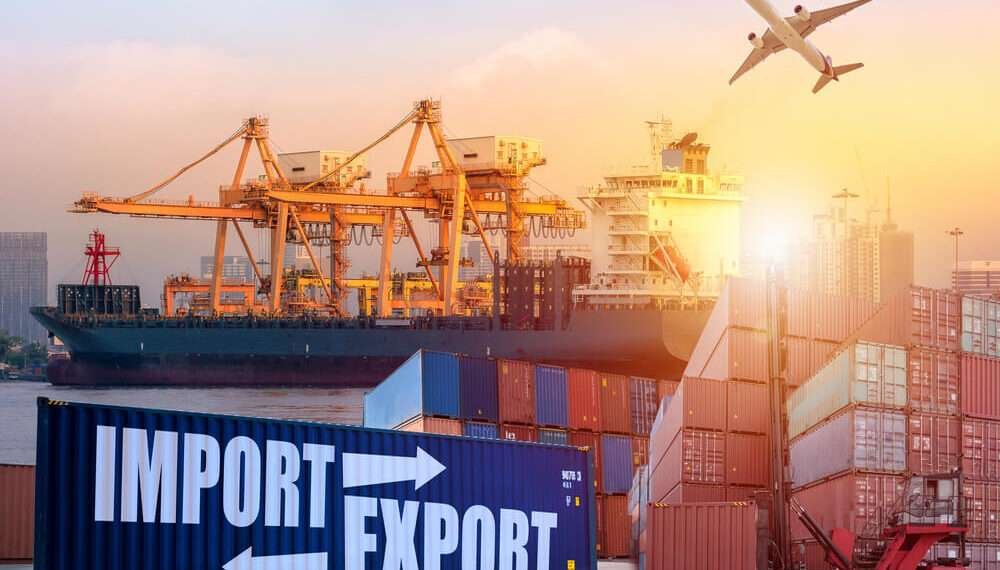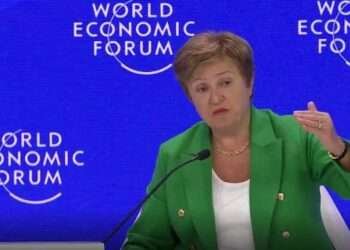Dr. Ernest Addison, the Governor of the Bank of Ghana (BoG) has disclosed that Ghana’s trade balance has significantly improved to a surplus in the first half of the year 2023, signalling the effectiveness of Ghana’s trade policies and the improvement of the country’s economic fortunes.
According to the BoG governor, in the first six months, the trade balance improved considerably to a surplus of US$1.8 billion, compared with US$1.5 billion a year earlier, mainly on account of a 13.4 percent decline in imports which outweighed a 7.9 percent drop in export earnings.
Dr Addison explained that the decline in total export earnings was due to lower earnings from crude oil, while higher gold and cocoa exports earnings moderated the losses. He posited that in the first half of the year, crude oil exports dropped by 41.3 percent to US$1.7 billion, driven by lower production volumes from the Jubilee and TEN fields and decline in world prices. Gold exports, on the other hand, increased by 14.2 percent to US$3.5 billion.
“The trade surplus, together with lower outflows in the investment income from lower external debt service payments due to the debt standstill, resulted in a current account surplus of US$849.2 million, compared with a US$1.1 billion deficit recorded a year earlier. Similarly, the capital and financial account recorded reduced net outflow of US$897.3 million, on the back of lower outflows in the financial accounts.”
Dr. Ernest Addison
Moreover, BoG noted that prices of Ghana’s major export commodities (cocoa, gold and crude oil) traded mixed on the international market in the first half year. Cocoa prices surged to record highs last seen over a decade ago, triggered by tight supplies from West Africa coupled with expectations of a global deficit in the 2022/2023 crop season.
On a year-to-date basis, cocoa beans gained 25.5 percent to settle at US$3,185.29 per tonne in June 2023. International benchmark crude oil prices lost 7.8 percent in the year to close at US$74.98 per barrel due to concerns that sluggish global growth could reduce energy demand. This has increased the trade surplus to new heights.
BoG Builds Up US$1.0 billion in Reserves
The Bank of Ghana Governor averred that from the beginning of the year to June 2023, the Bank of Ghana has built up US$1.0 billion in reserves, mainly coming from its gold purchase programme, and settlement of short-term liabilities. Meanwhile, he asserted that Gross International Reserves (excluding encumbered assets and petroleum funds) improved to US$2,353.95 million equivalent to 1.1 months of import cover, compared with US$1,440.0 million (0.6 months of import cover) recorded at the end of December 2022.
The Bank’s Domestic Gold Purchase Programme was launched in June 2021 with the key objective of shoring up the Bank of Ghana’s foreign reserves by purchasing domestically produced gold and converting same into foreign assets (monetary gold). Since inception of the programme, a total of 7.73 tons of monetary gold, valued at approximately US$480 million, has been added to reserves under the Gold for Reserves programme, well ahead of the target of doubling the gold holdings in 5 years.
Dr Addison noted that the foreign exchange market has remained relatively stable for the first six months of 2023, supported by positive market sentiments derived from the IMF disbursement of the ECF first tranche of US$600 million, forex purchases from the mining and oil sectors, and weakened demand.
In the intervening time, Dr Addison noted that the Ghana cedi depreciated by 20.6 percent against the US dollar in January 2023 and has remained generally stable since then with a cumulative depreciation of 1.8 percent between February and June 2023.





















